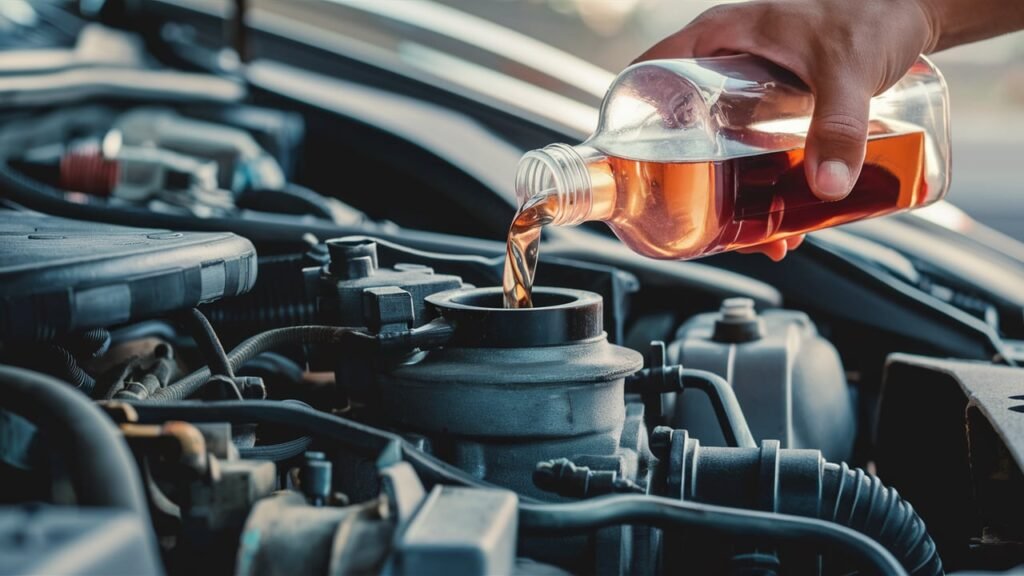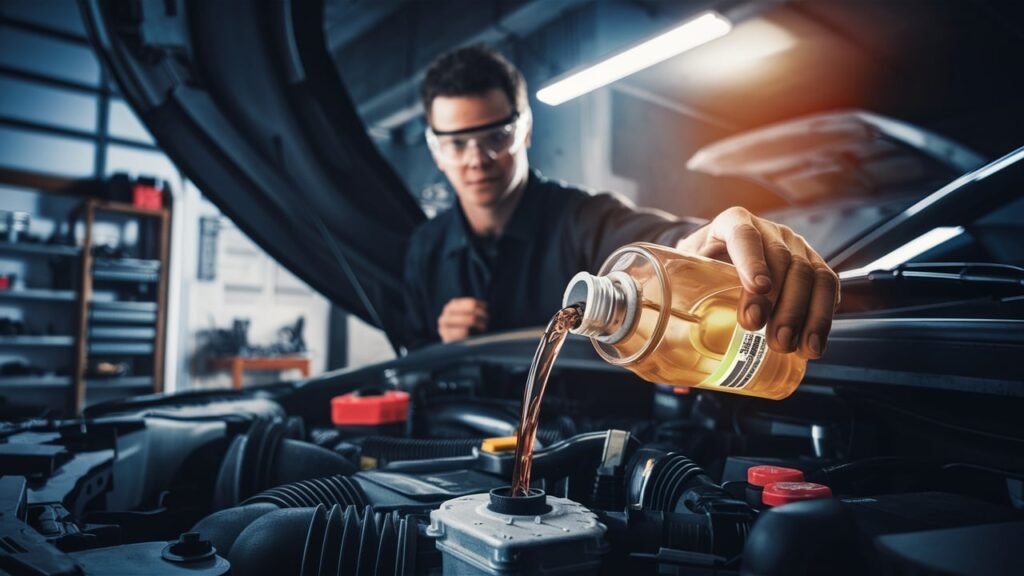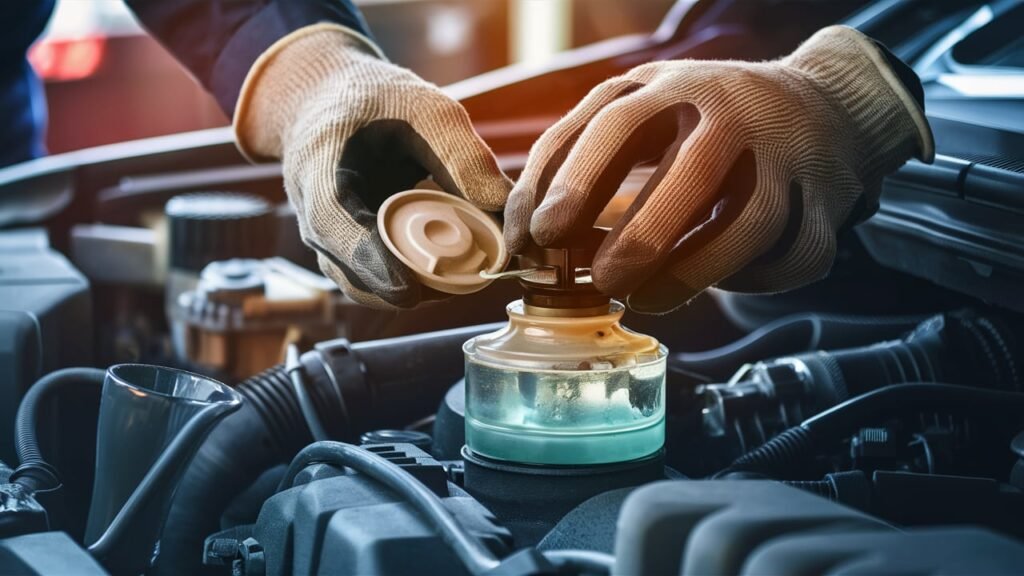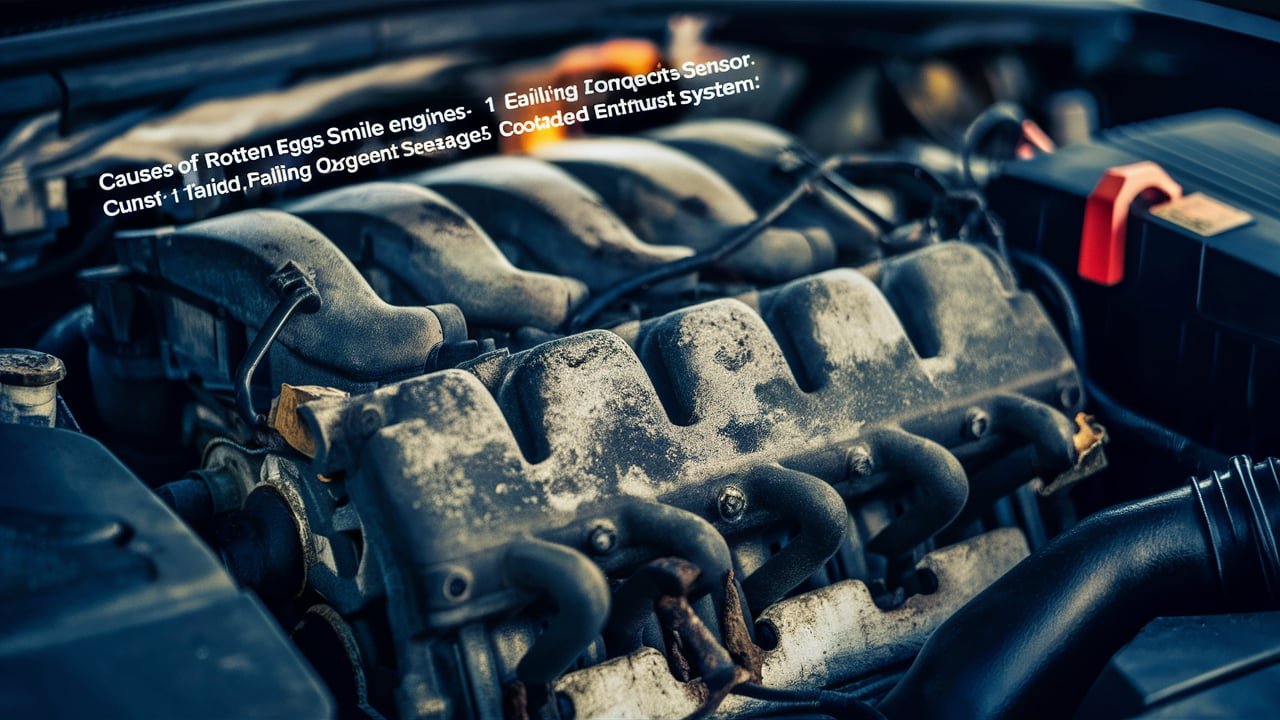
Understanding the Causes of Rotten Egg Smell in Car Engines
Unveiling the veil of mystery shrouding the disconcerting scent of rotten eggs emanating from car engines is a discourse that beckons both seasoned drivers and automotive enthusiasts into the intricate realm of mechanics.
The encounter with this unpleasant odor, often likened to spoiled eggs, unearths a conundrum that transcends mere olfactory discomfort; it hints at underlying intricacies within the vehicular machinery that demand thorough investigation.
Understanding the causative factors behind this pervasive scent proves pivotal in unlocking a trove of insights vital for maintaining optimal engine performance and ensuring vehicle longevity.
Delving into the origins of this vexatious aroma serves as a proverbial gateway to comprehension, shedding light on chemical phenomena that catalyze its presence within the vehicle’s confines. This malodorous nuisance often finds its roots in the enigmatic realms of catalytic converters, fuel sulfur content, engine overheating perils, and insidious evaporative emissions intricacies.
Deciphering these cryptic underpinnings not only aids in discerning the noxious fumes’ emergence but also empowers individuals to navigate preventive maintenance measures strategically. Join us on an enlightening journey through the labyrinthine recesses of automobile technology as we unravel the nuanced tapestry behind the notorious rotten egg smell lingering in car engines.
Chemical Reactions in the Engine
When your car engine emits a rotten egg smell, it often signifies the occurrence of specific chemical reactions within the internal combustion system. These reactions lead to the production of hydrogen sulfide gas, notorious for its foul odor reminiscent of rotten eggs.
One notable reaction involves sulfur compounds that are present in fuel or additives interacting with other elements under high temperatures within the engine. Understanding these chemical processes is crucial for diagnosing and addressing the root cause of the unpleasant odor.
These chemical reactions not only result in an offensive smell but can also have detrimental effects on critical components of your vehicle, such as the catalytic converter and exhaust system. Hydrogen sulfide gas can corrode these parts over time, leading to reduced efficiency and potential malfunctions.

Regular maintenance practices play a vital role in preventing these reactions from occurring. Timely tune-ups, inspections, and using quality fuel are fundamental measures to maintain optimal engine performance and avoid the formation of hydrogen sulfide gas.
Maintenance schedules should include thorough checks on fuel systems to prevent sulfur-related issues and ensure smooth operation. By staying proactive with maintenance routines, car owners can mitigate the risk of encountering a rotten egg smell emanating from their engines.
Treating your vehicle with care through preventive measures not only enhances its longevity but also ensures a pleasant driving experience devoid of noxious odors caused by chemical reactions within the engine.
Catalytic Converter Malfunction
When it comes to the occurrence of a rotten egg smell in car engines, one of the key culprits is often a malfunctioning catalytic converter. The catalytic converter serves a crucial role in reducing harmful emissions by converting toxic gases into less harmful substances through chemical processes.
However, when this component malfunctions, it can lead to the release of hydrogen sulfide gas, which is notorious for its foul odor reminiscent of rotten eggs. This malfunction can occur due to various reasons, including physical damage, clogging, or deterioration over time.
One significant factor that influences catalytic converter performance and can contribute to the unpleasant aroma is the sulfur content present in fuel. Higher levels of sulfur in gasoline can hinder the catalytic converter’s ability to effectively convert harmful gases into inert compounds, leading to the emission of hydrogen sulfide and causing the distinct smell inside and outside the vehicle.

Understanding this correlation emphasizes the importance of using low-sulfur fuels or additives that help mitigate sulfur-related issues and preserve catalytic converter functionality.
Diagnosing and addressing catalytic converter problems require systematic inspection and testing by qualified automotive professionals. Oftentimes, symptoms like reduced engine performance, increased emissions output, or unusual smells indicate underlying issues with the catalytic converter.
By utilizing diagnostic tools and techniques specific to assessing catalytic converter function, mechanics can pinpoint faults accurately and recommend appropriate solutions such as repairs or replacements.
Proactive measures include regular maintenance checks to prevent severe malfunctions that could not only produce unpleasant odors but also impact overall engine performance and environmental compliance.
Sulfur Content in Fuel
High sulfur content in fuel can play a significant role in the generation of the dreaded rotten egg smell that car owners sometimes encounter. When sulfur-containing compounds present in fuel are burned during the combustion process in the engine, they release hydrogen sulfide gas into the exhaust system.
This hydrogen sulfide gas is responsible for the characteristic odor resembling rotten eggs that permeates from the vehicle. Understanding this chemical process sheds light on why certain driving conditions or fuels can trigger such smells within cars.
The effects of burning sulfur-containing compounds extend beyond unpleasant odors; they also have environmental implications due to increased emissions of harmful gases into the atmosphere. To combat this issue and reduce sulfur-related odors emanating from car engines, one effective solution is to opt for low-sulfur fuels.
Low-sulfur fuels contain reduced levels of sulfur compounds, consequently decreasing the amount of hydrogen sulfide gas produced during combustion and minimizing foul smells. Additionally, some drivers may choose to use additives designed to lower sulfur emissions further, contributing to a more pleasant driving experience for both themselves and those around them.

By being proactive about fuel choices and considering factors such as sulfur content, car owners can address one of the potential causes behind foul odors in their vehicles. Opting for cleaner-burning fuels marked by lower sulfur levels not only aids in reducing unpleasant smells but also supports efforts toward environmental conservation by lowering overall emissions.
These conscious decisions showcase how understanding the impact of fuel composition on engine processes can lead to tangible improvements in both air quality and driving comfort for individuals on the road.
Engine Overheating and Rotten Egg Smell
When an engine overheats, the increased temperatures can trigger chemical reactions within the exhaust system that break down sulfur compounds present in fuel or other engine components. These reactions release hydrogen sulfide gas, which is notorious for its rotten egg smell.
Prolonged overheating not only intensifies this odor but can also lead to a cascade of detrimental effects on the engine’s internal components. High temperatures can cause seals to degrade, gaskets to fail, and may even result in warping of critical parts, all of which contribute to the release of foul odors.
To prevent engine overheating and the associated smells, it is essential to address any cooling system issues promptly. Regularly checking coolant levels, ensuring proper function of the thermostat, and inspecting hoses for leaks or cracks are fundamental preventive measures.
Additionally, keeping an eye on temperature gauges while driving can help catch early signs of overheating before they escalate into more significant problems. Proper maintenance of cooling system components like radiators and water pumps is crucial for preventing overheating incidents that can lead to unpleasant odors emanating from your car engine.
Considering that engine overheating can exacerbate the emission of foul-smelling gases due to sulfur compound breakdowns, prioritizing preventative measures such as routine checks and maintenance schedules becomes paramount for every car owner.
By understanding how overheating contributes to odorous emissions and implementing proactive strategies to address potential issues, drivers can not only eliminate rotten egg smells from their engines but also ensure optimal performance and longevity of their vehicles.
Impact of Evaporative Emissions System
Understanding the intricacies of car engines goes beyond just mechanical components; it extends to sophisticated emission control systems like the evaporative emissions system. Issues within this system can lead to a noxious odor akin to rotten eggs emanating from the vehicle.
This peculiar smell often indicates a malfunction in handling fuel vapors, highlighting the crucial role of the evaporative emissions system in maintaining air quality standards.
The fuel vapor management aspect of the evaporative emissions system is designed to capture and control harmful hydrocarbon vapors, preventing their release into the atmosphere.
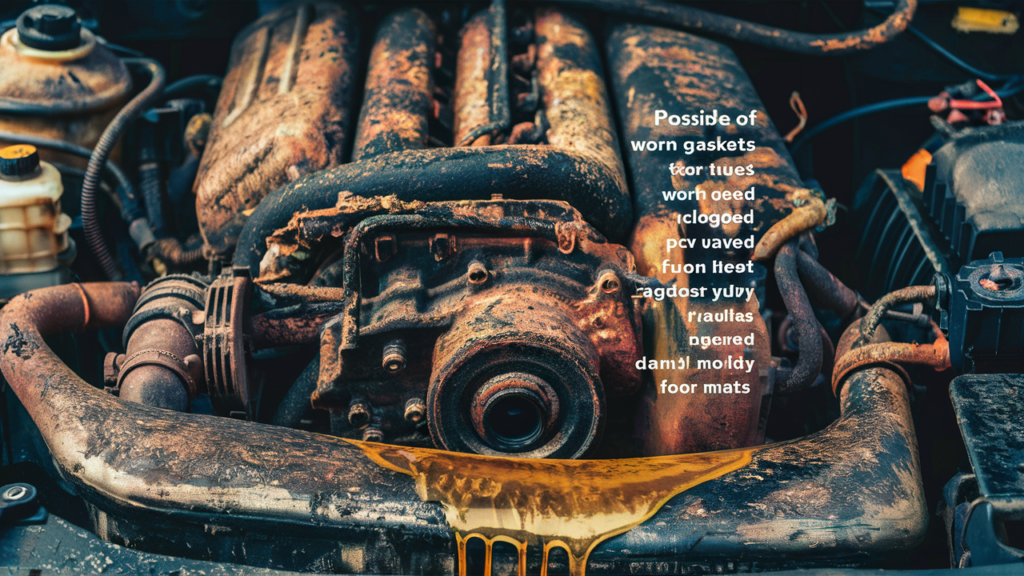
When this system encounters faults like leaks or malfunctions in its components, it can inadvertently generate sulfurous odors reminiscent of rotten eggs. It is essential for car owners and drivers to recognize these olfactory warnings as potential signs of underlying issues with emission control mechanisms.
Troubleshooting problems within the evaporative emissions system involves meticulous inspection of various components such as the gas cap, purge valve, charcoal canister, and associated hoses. Any defects in these elements can disrupt the efficient containment and processing of fuel vapors, leading to unpleasant smells permeating from the vehicle.
By conducting systematic checks and adhering to manufacturer-recommended maintenance procedures, drivers can proactively address issues related to their car’s evaporative emissions system, ensuring both optimal performance and environmental compliance.
Maintenance Practices for Odor Prevention
To curb the unpleasant phenomenon of a rotten egg smell emanating from your car engine, adhering to regular maintenance schedules is paramount. Routine maintenance not only ensures optimal performance but also helps in identifying and rectifying potential causes of foul odors.
Checking the exhaust systems regularly can be particularly beneficial, as leaks or malfunctions in this system can contribute to the release of sulfur-containing compounds that result in the infamous odor. By promptly addressing any issues with the exhaust system, you can prevent the spread of unwanted smells and maintain a healthier environment within your vehicle.
Replacing filters at recommended intervals is another essential task to mitigate odor-related problems in your car engine. Filters play a crucial role in trapping harmful particles and preventing them from circulating within the engine.
Over time, these filters can become clogged or less effective at their job, leading to a build-up of contaminants that may contribute to foul smells. By staying vigilant about filter replacements, you can enhance air quality and reduce the likelihood of experiencing unwanted odors while driving.
Monitoring fuel quality is equally vital when aiming to prevent rotten egg smells from permeating your car cabin. Poor-quality fuel with high sulfur content can exacerbate odor issues by releasing sulfurous compounds during combustion.

By choosing reputable fuel sources known for their lower sulfur levels or considering additives designed to minimize sulfur-related odors, you can take proactive steps towards maintaining a more pleasant driving experience free from noxious scents.
Consulting professional mechanics for comprehensive inspections and guidance on maintaining a clean-running engine offers an extra layer of assurance that all potential sources of unpleasant odors are adequately addressed through expert care and attention.
By incorporating these key maintenance practices into your routine vehicle care regimen, you actively combat the root causes behind rotten egg smells in car engines, ensuring not only olfactory comfort but also safeguarding the longevity and efficiency of your vehicle’s mechanical components.
Prioritizing these preventative measures proactively supports a cleaner operating environment within your car and fosters smoother rides devoid of unwelcome surprises related to foul odors emerging from under the hood.
Summary and Conclusion.
In conclusion, the presence of a rotten egg smell in car engines can stem from various root causes ranging from chemical reactions within the engine to malfunctions in critical components like the catalytic converter. Understanding these causes is pivotal for car owners, drivers, and automotive enthusiasts as it serves as an indicator of potential issues that require timely attention.
By grasping the mechanisms through which hydrogen sulfide gas is formed, recognizing the implications of catalytic converter dysfunction, addressing high sulfur content in fuel, preventing engine overheating, and troubleshooting evaporative emissions system problems, individuals can adopt proactive measures to maintain their vehicles’ optimal performance and eliminate unpleasant odors.
To mitigate the occurrence of foul smells emanating from car engines effectively, adherence to routine maintenance practices emerges as a central tenet. Regular inspections, prompt repairs of faulty components, utilization of low-sulfur fuels or additives, and vigilance towards engine temperature management collectively contribute to ensuring a smooth and odor-free driving experience.
It is imperative for car owners to stay proactive in monitoring their vehicle’s health, seeking professional assistance when needed, and staying informed on best practices for mitigating odor-related issues. Ultimately, a comprehensive understanding of these causal factors equips individuals with the knowledge required to preserve both the functionality and olfactory integrity of their automotive assets.

